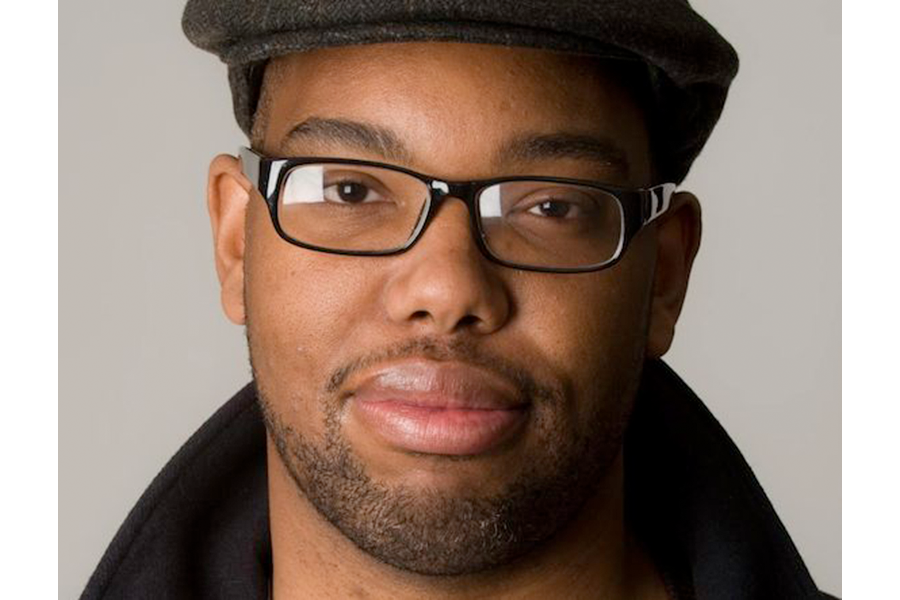Ta-Nehisi Coates packed the house at Davidson College talking on race
Loading...
DAVIDSON, N.C. – Last week, in this former Confederate state, on a small college campus with an enrollment that is 75% white, a 40-year-old black man known for his blunt and cynical assessments of American racial history packed the basketball arena here with 4,000 people. And, while blacks and other minorities were well-represented, most of the room was still occupied by what we think of as white people – though even the notion of whiteness would soon enough be shredded by the main attraction: Ta-Nehisi Coates, a journalist and commentator who has become the voice of his generation on black America.
Davidson College sits 30 miles from Charlotte, tucked among exurbs that have sprouted in the last 25 years or so. Coates filled John Belk Arena, a gym better known for hosting another guy who has enjoyed a pretty good 2015: reigning NBA MVP Stephen Curry, who starred on the Davidson basketball team from 2006 to 2009.
Coates didn’t shoot any 3-pointers, but he had no problem keeping everyone’s attention. He told the students and others attending the lecture about his racial awareness and disappointment as a young man growing up in West Baltimore and, later, a sense of awakening at Howard University in Washington. He joked about the ridiculousness of his newfound prominence leading some to expect him to weigh in on any and all topics involving race, as though he, or anyone, could ever be an expert on all things.
A couple of his asides half-seriously noted the surreal experience of so many white people reading his indictment of not just slavery and segregation but mass incarceration, police brutality, and relentless profiling.
“I talk about heritage a lot,” Coates said, standing less than a two-hour-drive from where the Confederate flag last flew at the South Carolina capitol in July (nullified at long last only by revulsion from the massacre several weeks earlier of nine African Americans during a Bible study class at a Charleston church).
“When you bring up slavery, [people say], ‘That was a long time ago.’ When we celebrate Presidents Day, no one says that was a long time ago. When we talk about the Greatest Generation, no one says that was a long time ago. If I were to stand up before you and praise George Washington, no one would say, ‘He was president a long time ago.’ So my argument is that either heritage matters or it doesn’t. If Thomas Jefferson matters, then Sally Hemings matters, too.”
Such statements have made Coates impossible to ignore. Nobel Prize-winning novelist Toni Morrison declared him the rightful heir to James Baldwin when, last summer, Coates published “Between the World and Me,” an angry denunciation of America as nothing more or less than a haven of constant racial oppression. A year earlier, he became a rock star of cultural commentary by reviving a call for slavery reparations to be paid by the federal government in a lengthy cover story for The Atlantic magazine.
Critics have come from the left and the right. Rich Lowry, editor of The National Review, has argued that Coates ignores nuance and unreasonably ascribes every problem to race.
“Coates blames [white America] for the death of an acquaintance of his from Howard University, Prince Jones,” Lowry wrote last summer in a review of “Between the World and Me” in Politico. “He was shot by a black cop from a relatively affluent black-majority area governed by blacks [Prince George’s County, Md.].This doesn’t make it less awful, but suggests the picture is more complicated than Coates’ eloquent reductiveness suggests.”
At the other end of the spectrum came this attack from fellow African American social commentator Cornel West, who slammed Coates in a Facebook post just as “Between the World and Me” arrived. Seizing on Morrison’s blurb linking Coates and Baldwin, West wrote, “Baldwin was a great writer of profound courage who spoke truth to power. Coates is a clever wordsmith with journalistic talent who avoids any critique of the Black [sic] president in power.”
Coates expects no grand solution for binding the nation’s racial wounds, neither from himself nor anyone else. What he seeks, for the moment, is recognition of what he describes as constant tyranny leading to the ills of so many inner-city neighborhoods.
Even the words “white” and “black” strike him as ludicrous, uniquely American and inherently toxic.
Or, as Coates said while answering a question posed by a Davidson student, “It’s not the case that when people came here from Ireland, came here from southern Italy, came here from Eastern Europe that we immediately said, ‘Congratulations, now you’re white.’ We didn’t. In fact, we disqualified those people from (equality and fairness for many years after they came to America).... We have a white race and a black race in this country because we decided that we need those things. We made that decision because we wanted to plunder the maximum number of people possible.”
For these and other assessments, Coates received several standing ovations, including the approval of audience member Harvey Gantt, the first black mayor of Charlotte and a man who, in 1963, became the first black student at Clemson University.
As for broader approval? Two days after Coates spoke at Davidson, “Between the World and Me” won the National Book Award.







